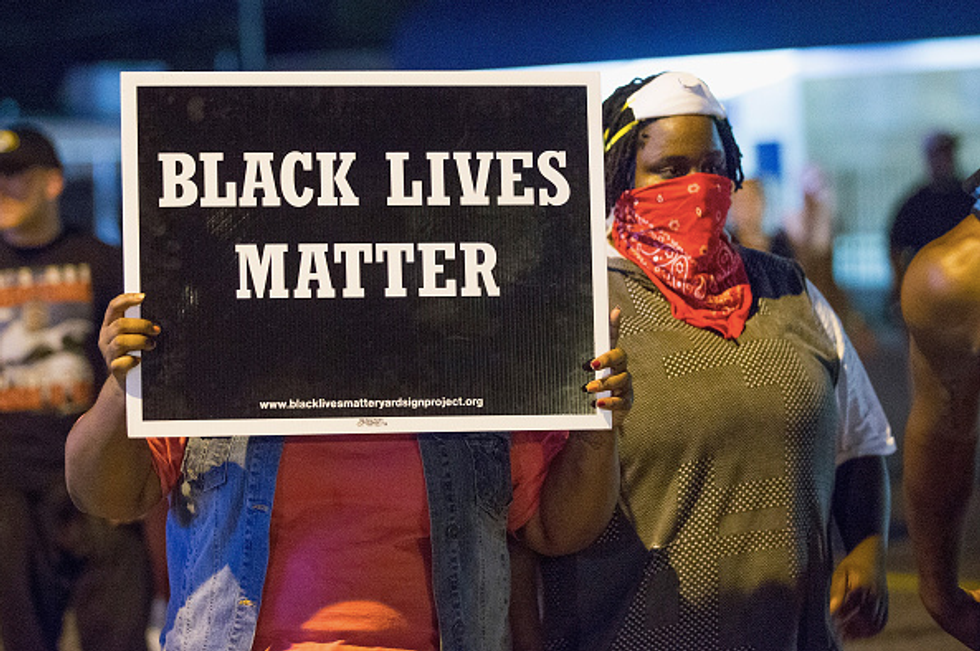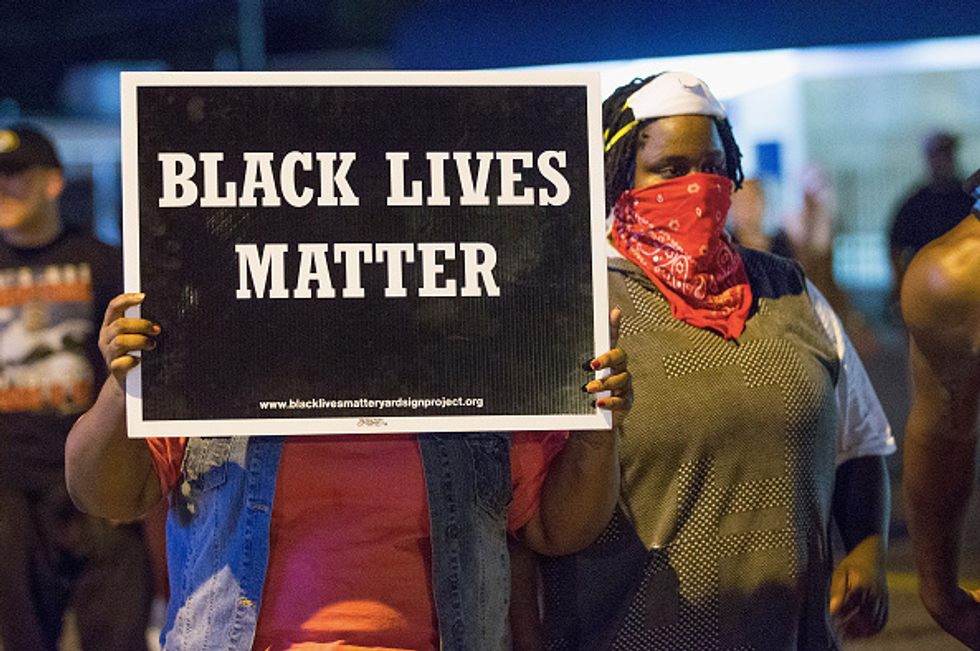
Demonstrators, marking the one-year anniversary of the shooting of Michael Brown, protest along West Florrisant Street on August 10, 2015 in Ferguson, Missouri. (Photo by Scott Olson/Getty Images)

Journalist Barbara Reynolds agrees with rapper Tef Poe — the demonstrations of the Civil Rights movement are vastly different than the more recent Black Lives Matter protests.
In her column for the Washington Post, "I was a civil rights activist in the 1960s. But it's hard for me to get behind Black Lives Matter," Reynolds, a former civil rights activist, outlined the differences between the movement of which she was a participant and the Black Lives Matter movement. These new activists, according to her, are admired for their courageousness and their cause by those in her "crowd" who also "fundamentally disagree with their approach."

Reynolds wrote:
The baby boomers who drove the success of the civil rights movement want to get behind Black Lives Matter, but the group’s confrontational and divisive tactics make it difficult. In the 1960s, activists confronted white mobs and police with dignity and decorum, sometimes dressing in church clothes and kneeling in prayer during protests to make a clear distinction between who was evil and who was good.But at protests today, it is difficult to distinguish legitimate activists from the mob actors who burn and loot. The demonstrations are peppered with hate speech, profanity, and guys with sagging pants that show their underwear. Even if the BLM activists aren’t the ones participating in the boorish language and dress, neither are they condemning it.
The 1960s movement also had an innate respectability because our leaders often were heads of the black church, as well. Unfortunately, church and spirituality are not high priorities for Black Lives Matter, and the ethics of love, forgiveness and reconciliation that empowered black leaders such as King and Nelson Mandela in their successful quests to win over their oppressors are missing from this movement. The power of the spiritual approach was evident recently in the way relatives of the nine victims in the Charleston church shooting responded at the bond hearing for Dylann Roof, the young white man who reportedly confessed to killing the church members 'to start a race war.' One by one, the relatives stood in the courtroom, forgave the accused racist killer and prayed for mercy on his soul. As a result, in the wake of that horrific tragedy, not a single building was burned down. There was no riot or looting.
Reynolds argued that activists can better win allies with nonviolent approaches. She also argued that the activists are in need of mentorship, a commodity that is shrinking as veteran civil rights activists pass away.
"The Revs. Jesse Jackson and Al Sharpton would be the most obvious assets to BLM, as civil rights leaders who have run for president and led political campaigns — but BLM has welcomed neither," Reynolds wrote. "Long before they targeted Sen. Bernie Sanders, a Democratic presidential candidate, young activists stormed the stage and stole the microphone at Sharpton’s 'Justice for All' march against police brutality in Washington in December."
Reynolds critiqued the recent movement for being too narrow in its approach. The civil rights movement, she said, was not just a movement for black people. The Black Lives Matter slogan is also too broad as it doesn't take into account black-on-black murders, the leading cause of death among black men between the ages of 15 and 34.
"But to win broader appeal, it must work harder to acknowledge the humanity in the lives of others. The movement loses sympathy when it shouts down those who dare to utter 'all lives matter,'" Reynolds wrote.
Read the rest of Reynold's piece on the Black Lives Matter movement here.